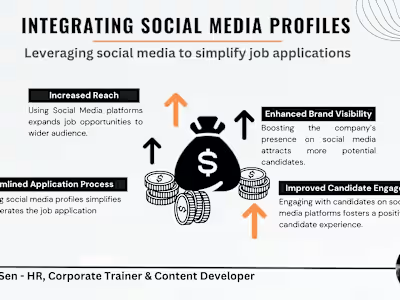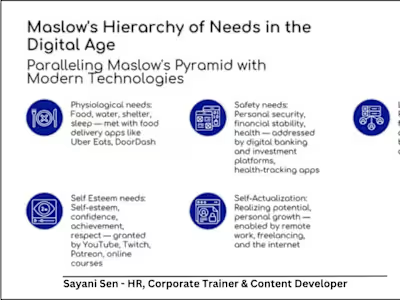Developing HR Strategies for Remote Workforce
The pandemic has taught the world to operate in a digital mode to a physical mode. overnight organizations across the globe had to transition from a in-office model to remote working to ensure isolation. HR strategies took a brain wrenching evolvement to come up with cutting-edge HR strategies tailored specifically for remote teams. Here is a comprehensive approach to empower remote workforce like never before.
Clear Communication Channels: Establish clear communication channels to ensure seamless communication among remote teams. Utilize various tools such as email, instant messaging, video conferencing, and project management platforms to facilitate communication.
Flexible Work Policies: Implement flexible work policies that accommodate remote work, including flexible working hours and results-based performance evaluations rather than solely focusing on hours worked.
Remote Onboarding and Training: Develop comprehensive onboarding processes tailored for remote employees. Provide remote training opportunities to support their professional development and ensure they have the necessary skills to excel in their roles.
Performance Management: Implement remote-friendly performance management processes that focus on outcomes and results rather than micromanagement. Set clear performance expectations and provide regular feedback to remote employees to help them stay on track.
Employee Engagement Initiatives: Implement initiatives to foster a sense of belonging and connection among remote employees. This could include virtual team-building activities, online social events, and recognition programs to celebrate remote employees' achievements.
Wellness and Support Programs: Offer wellness programs and resources to support the physical and mental well-being of remote employees. Provide access to employee assistance programs, online fitness classes, and mental health resources.
Technology and Infrastructure Support: Ensure remote employees have access to the necessary technology and infrastructure to perform their roles effectively. Provide technical support and resources to address any issues they encounter while working remotely.
Cybersecurity Measures: Implement robust cybersecurity measures to protect sensitive data and ensure the security of remote work environments. This may include cybersecurity training for remote employees, encryption tools, and secure access protocols.
Regular Check-ins and Feedback: Schedule regular check-ins between remote employees and their managers to discuss goals, progress, and any challenges they may be facing. Encourage open communication and provide opportunities for remote employees to share feedback and voice concerns.
Career Development Opportunities: Offer remote employees opportunities for career advancement and professional growth. Provide access to online learning platforms, mentorship programs, and virtual career development workshops.
By implementing these HR strategies for a remote workforce, organizations can effectively manage and support their remote employees, leading to increased productivity, engagement, and satisfaction within the remote workforce.
Like this project
Posted Feb 29, 2024
Researched and designed comprehensive HR strategies to support a remote workforce, resulting in increased productivity and employee satisfaction.






